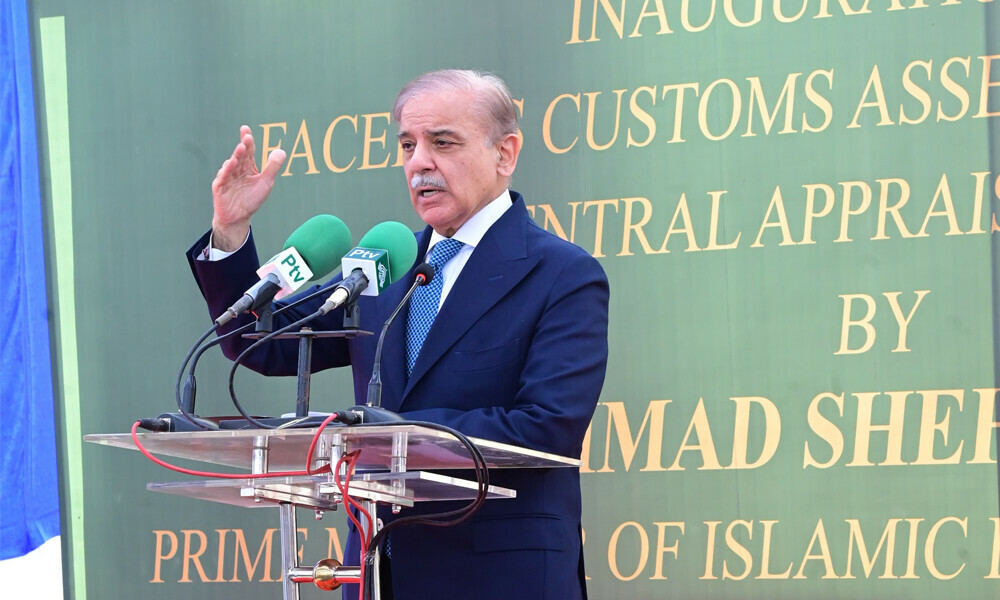PTBP Web Desk
The Pakistan Water and Power Development Authority (WAPDA) corporate family rating (CFR) to Caa1 from Caa2. The agency also raised its Baseline Credit Assessment (BCA) to caa1 from caa2, while revising the outlook to stable from positive.
The move reflects a stronger alignment between WAPDA and the Government of Pakistan, given the utility’s full state ownership and its strategic role in hydropower and water management. However, Moody’s also flagged WAPDA’s weak financial position, long receivables cycle, and persistent operational challenges at the troubled Neelum-Jhelum Hydropower Project (NJHP).
According to Moody’s, the rating upgrade follows its recent action on the Government of Pakistan’s sovereign rating, which was set at Caa1 stable on 13 August 2025. Since WAPDA is fully owned and directly overseen by the government, its credit rating is strongly tied to that of the state.
Erman Zhang, Moody’s Ratings analyst, explained that the upgrade “underscores the strong credit linkage between WAPDA and the sovereign, driven by government ownership and oversight, as well as WAPDA’s exclusive domestic operations.”
Under Moody’s Joint Default Analysis (JDA) framework for government-related issuers, WAPDA is seen as having both a high dependence on and a high likelihood of receiving extraordinary support from Islamabad in case of financial stress.
Despite the upgrade, WAPDA’s caa1 BCA reflects significant risks. The authority faces financial pressures due to:
- A massive hydropower expansion programme requiring large-scale capital spending.
- Persistent delays in tariff adjustments by the regulator, limiting its cost recovery.
- A long receivables cycle, particularly from its government-owned power purchaser.
Moody’s noted that WAPDA’s funds from operations (FFO) will remain weak over the next 12–18 months unless the regulator approves tariff increases and operations at NJHP resume. The assessment also incorporates the combined financials of WAPDA’s main power segment and the Neelum-Jhelum project.
Liquidity is another concern. WAPDA has substantial current borrowings and was unable to repay some government loans on schedule, partly due to delays in receivable recoveries. Moody’s expects these liquidity strains to persist.
The 969-megawatt Neelum-Jhelum Hydropower Project (NJHP) has been suspended since May 2024 due to low water pressure in its tailrace tunnel. The repair costs remain uncertain, and no timeline for resuming operations has been confirmed.
This is not the first major setback for NJHP. The plant was previously shut down for 13 months when cracks appeared in its tunnel, before briefly resuming operations in September 2023. During the current shutdown, NJHP is relying on receivables to meet its operational cash requirements, repair expenses, and debt servicing.
These operational risks underscore the fragility of WAPDA’s financial position, particularly as it continues to rely heavily on external borrowing to finance its hydropower projects.
Moody’s assessment highlights WAPDA’s strategic importance to Pakistan’s national agenda. The utility plays a vital role in:
- Constructing and operating hydropower plants that supply affordable electricity.
- Building water storage facilities critical to addressing Pakistan’s water scarcity.
Given this importance, Moody’s expects a high likelihood of state support in times of need. However, the agency also flagged concerns about the government’s own financial stress, reflected in its Caa1 rating, and its limited capacity to extend large-scale assistance.
Furthermore, Pakistan’s regulatory unpredictability and lack of transparency add to the risks, often delaying tariff approvals and complicating WAPDA’s cost recovery.
The stable outlook on WAPDA mirrors the stable outlook on Pakistan’s sovereign rating. Moody’s expects the strong linkage between WAPDA and the government to remain intact over the next 12–18 months.
The outlook assumes no drastic deterioration in WAPDA’s operating performance beyond the already acknowledged risks, and continued government supervision of its finances.
External Link: Read Moody’s official methodology on government-related issuers
Internal Link: See our coverage of Pakistan’s sovereign rating update
For Pakistan’s struggling power sector, Moody’s upgrade offers some positive momentum. It indicates continued investor confidence tied to sovereign backing, despite the sector’s financial challenges.
analysts caution that without structural reforms—particularly in tariff-setting, receivable recovery, and project management—the upgrade alone will not resolve WAPDA’s liquidity strains. The operational uncertainty at NJHP further complicates the outlook for Pakistan’s hydropower capacity.




